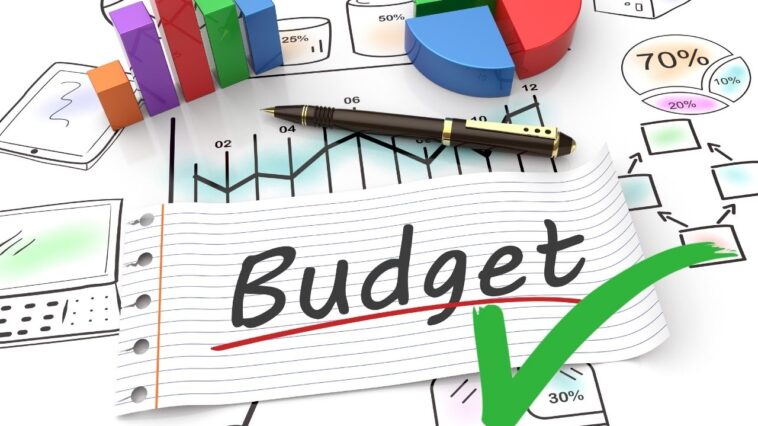The first step towards managing personal finances and achieving financial goals is usually making a budget. However, keeping up with the set budget might not be practical. Whether you are aiming towards buying a specific house, or car, paying off a loan you found yourself in, or maybe you would just like to tame your anxiety about the money you have made so far, planning is imperative in working out a budget. This guide stresses feasible measures and ways on how one can avoid the temptation of going overboard and help achieve their financial plans.
Why Sticking to the Budget is Important
A budget defines the limits within which one plans their finances by outlining a budget on only what is necessary. A budget helps to:
- Understand Where the Money Goes: If you are aware of how your cash is spent, you would be able to control your expenses in a much superior way.
- Curbs Excessive Spending: Moderates compulsion bids and provides better management of expenditure.
- Self Control: Helps achieve near-term goals such as saving for a mortgage and long-term savings such as building a nest egg or investing for retirement.
- Minimize Stress: The pressure of keeping and tracking finances can be alleviated with knowing that the finances are positive.
How to Stick to Budget
Establish Realistic and Precise Goals
- Establish your Financial Goals: The first step to sticking to a budget is to decide what you hope to achieve with the budget. Is it the settling of debts, saving for a holiday, or establishing an emergency fund? Goals help you see a path and have some inspiration to work with.
- Establish Short-Term and Long-Term Goals: And this is how you do it. You have to turn your long-term goals into small achievable pieces. Short-term goals (e.g., saving $500 in a span of three months) give you some little victories and self-motivate you to keep the streak going, while long-term goals (e.g., convincing an 80-year-old to live in a home with a retirement book) bring into perspective the bigger picture.
Use the Budgeting Approach That You Are Comfortable With
Simplified Budgeting Methods:
- 50-30-20 Planning Rule: Fifty percent of one’s income should take care of the needs, thirty percent of the application should take care of the desires, while twenty percent should be for investing and paying debts. It is simple and quite adaptable.
- Zero-Based Budget: Every participation of a dollar earned is earmarked to one of four categories of management: income, expenses, saving, and investing ensuring that every coin is put to work.
- Envelope Method: Prepare a number of envelopes, each containing a denomination of money that has been budgeted for a specific purchase, such as food or entertainment. When the envelope is finished, that is the end of that line.
- Budget with Apps: Use budgeting apps and software, such as Mint, YNAB, and EveryDollar, to help manage expenses, create spending categories, and follow up on budget-related objectives.
Track Your Spending
- Keep Track: Track your expenses on a daily or weekly basis. This can help you see where your money goes, and if you are spending excessively, you can take action as soon as possible.
- Be Comfortable with Them: Get computer programs and applications that you can use for budgeting, which will assist you in categorizing all the expenditures. Such applications have the feature of notifying the user if one is getting close to their budget.
- Accounting: Familiarize yourself with your checkbooks and credit card accounts, and on a regular basis scan through these records to look for things that do not add up, unnecessary expenditure, and where you can cut down.
Create an Emergency Fund
- How Helpful the Emergency Fund is: Financial emergencies thighs make you spend above your budget for reasons that do not have a convenient explanation. When such emergencies happen, you only wish to be financially stable.
- How to Build It: Try to save enough money for 3 to 6 months of monthly expenses. Begin with keeping aside 29 100 a month or a little more until you achieve the above goal.
When Adjustable, Needs Should Be Placed Above Wants
- Management of Needs vs Wants: Housing, food, and transportation are needs that have to be spent on. Balancers, dining out, entertainment, and other consumer goods are wants, and they have to be managed as sometimes they lead to unnecessary spend.
- Ring Fence Non-Essentials Expenditure: Stop expenditure to the non-essential categories and channel those resources to savings or repaying debts.
- Practice the 24-hour Spend Rule: For purchases that you would make on impulse, wait for a minimum of 24 hours before making the actual purchase. This will give you enough time to reflect on whether or not you need the item.
Make The Finances Work for You
- Pay Yourself First: If you want your savings or investment account to grow, make arrangements to set aside some of your income into these accounts. And also set monthly deadlines for payments on bills so as to avoid being charged for non-pay.
- Advantages of Automation of Finances: Effective way to automate simple but important tasks that would otherwise tempt you to dip into your discretionary spending budget.
Revisit The Budget That You Have Facilitated After A Parental Control
- Monthly or Quarterly Reviews: A budget does not need to stay the same for a long time. Make sure to reassess your budget as the incomes or expenses or overall financial goals are achieved or modified. This will ensure that you are working with a budget that is appropriate for your current situation.
- Location of Leakages: Identify areas where to cut back costs on and target them in a new budget. You might want to set up lower budgets for those areas or find ways to reduce spending on these budgets.
Use Cash for Discretionary Spending
- Cash-Only Method: Out of the budget, you have planned for these types of activities, such as going for dinners, watching movies, or going shopping. Use some cash, which you withdraw once a month. When the cash is finished, no more spending on those activities.
- Psychological Impact: Handling money will make spenders be more cautious than just pass a card over the cashier, which moderates the urge to make unnecessary purchases.
Find Ways to Reduce Expenses
- Cut Unnecessary Subscriptions: Try to cancel monthly subscriptions for services you don’t use anymore, which could be streaming sites, gym, or magazine subscriptions.
- Shop Smart: Buy clothes and groceries for the best prices leveraging on discount coupons, loyalty programs, and cashback applications. Buy in bulk or choose ordinary brands whenever feasible.
- Negotiation of Switches: Contact service providers’ exercises, such as cable, internet, or insurance providers, to help decrease their charges or give discounts.
Stay Motivated and Reward Yourself
- Celebrate Milestones: If you wish to pay off a credit card or even reach a certain level of savings to treat yourself and achieve the goal that you had set, treat yourself. The reward doesn’t have to be that much; it can be a good meal or a little matter.
- Be Responsible: Budgeting needs external measures; tell your budget goals to a friend or family member who can keep you accountable. Seek emotional and financial encouragement by participating in financial support groups.
- Keep Track of Your Achievement: Graphs, charts, and vision boards will also help in keeping track of your progress. Photos of example projects for credit card purposes help, among other things, to keep oneself ‘pure’ from transformation.
Conclusion
Following the set budget is one of the most important strategies in achieving monetary compounds and realization of financial targets. It is possible to be in charge of your finances and bring into existence a better tomorrow without borrowing through setting reasonable goals, developing an appropriate budgeting system, managing expenses, and altering anything that requires attention. Budgeting is about making choices rather than cutting back the things that you love. DO invest adequately in relation to your goals. Such commitment calls for discipline, with its reward being good financial well-being.


